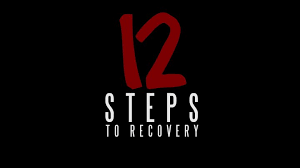I
destroyed my first marriage through infidelity, wild spending sprees,
outbursts of rage, and many of the other hallmarks of uncontrolled
bipolar mania. People who know the ugly details of my story are often
surprised to learn that my second marriage is so successful and solid.
How can my spouse trust me? How can I trust myself?
In my other life I am a lawyer and my particular passion is contract
law. To me, contracts are never sterile or boring. You see, contracts
are all about risk management. Because I care about my clients it is
easy for me to feel passion about protecting them - about shielding them
from harm. I have discovered that a contract can also help me in
managing my bipolar disorder. Contracts are not just restricted to the
world of commerce. The most personal and intimate of relationships –
marriage - is often understood as a contract. The Bible is built around
the contract between God and his people. Contracts can play a central
and highly effective role in managing our most cherished, private,
special connections. Put simply, a contract is an exchange of promises.
Promises that are enforceable. Promises that are guarantees. And since
coming to terms with my bipolar disorder,
I have discovered another very
empowering, mutually protective contract – the Treatment Contract.
 I first learned
I first learned about Treatment Contracts from The Bipolar Clinic
& Research Program at the Massachusetts General Hospital. This is
how Mass General describes this wonderful tool:
“A treatment contract is a document that you write while you are
feeling well to plan for the times when you do not feel as well. It is
written so you, your family, friends, and doctors can recognize your
symptoms of illness and can comply with your wishes for treatment.” In
other words, a Treatment Contract is an agreement you make ahead of
time, when you are well and able to make good decisions. It is critical
to understand that a Treatment Contract is NOT something that is imposed
on you. Instead, it is YOUR PLAN made ahead of time to ensure that you
get prompt treatment based on your own choices and instructions if you
become unwell.
 Right now my
Right now my medication and other treatment strategies are working
wonderfully and it is a long time since my last episode. But that is
only part of why we feel so good about our marriage and so confident of
coping with whatever the future may bring. For both of us we have added
security and peace of mind because we have the safety net of a
comprehensive Treatment Contract.
 In 12 Step
In 12 Step programs, it is often explained that folks are “only as
sick as the secrets they keep”. Sometimes the symptoms of bipolar
disorder also lead us to keep secrets and hold back important
information from our loved ones. However, as I myself have discovered
the hard way, once an episode of mania or depression fully develops, it
becomes almost impossible to make good choices. Instead, I am likely to
behave in ways that are destructive to myself and the people around
me. What makes it all worse is that during a serious mood episode we
become less connected with reality and with the people around us. This
makes it harder to short-circuit negative behaviors, especially if we
are being secretive or feel paranoid or in other ways deluded about the
“rightness” of our actions.
Make a treatment contract ahead of time.
Instead of understanding intervention from
loved ones and our medical team as well intentioned and necessary, we
may resent it and feel convinced they are the ones who “do not
understand”. The solution? Create a Treatment Contract ahead of time.
There are no hard and fast rules about how to do this. Do what works in
your situation, based on the issues that have come up in the past.
Because of my history of bipolar hypersexuality and infidelity, my
spouse and I are especially concerned with identifying the signs that a
manic episode is developing. At the first signs of mania we want to try
and stop the episode from becoming more extreme. W e also want to make
sure that no matter how acute the mania may become, the practical
consequences are minimized.
 How do we do this
How do we do this? Strong, decisive action may be necessary. This
means a proactive intervention aimed at containment. What are some
examples of “strong, decisive action”?
1.
Restrict or monitor Internet use. This is to avoid both online
shopping and gambling, and sex related activities such as pornography or
cybersex. It may also help prevent the bipolar person from isolating
and retreating into themselves too much.
2.
As much as you can, take cash, credit cards and ATM cards for
safekeeping. If things seem like they could get really out of control,
also consider taking the car keys.
3.
A dear friend of mine is married to a lovely guy with bipolar
disorder. He is a musician who has a long history of substance abuse as
well as his bipolar. My friend manages their money by giving him a
monthly allowance. He has an ATM card to access this account at all
times, but if he goes off his meds or seems to be getting hyper, she
cuts off all other access to their finances. This way he always has some
autonomy and dignity but can't get them into financial trouble
.
4
. Some experts suggest cutting up credit cards but this can be a
problem. For example, a non-bipolar spouse will still need to pay bills
and buy groceries. Finding a way to divide finances like my friend does
with her musician husband is more practical.
5.
Watch both email and conventional postal mail very carefully as
credit card companies are still sending out credit card applications and
those seductive little convenience checks.
6. If you are lucky enough to have any kind of portfolio, you may
need to confide in your investment advisor or broker. Although financial
professionals are bound to carry out the client's instructions, a
heads-up can encourage them to insist on written instructions and a face
to face meeting. Ideally agree that they will notify a spouse, doctor
or other appropriate person if any unusual transactions are requested.
Does
restricting or monitoring Internet use, or cutting off access to
finances sound heavy handed? Please listen – I destroyed a wonderful
marriage and my financial security when manic, so I KNOW these actions
can be necessary, constructive and loving. Managing bipolar is a lot
easier with the right tools, and Treatment Contracts are a tool I
strongly recommend.
Sarah Freeman
http://ibpf.org/blog/treatment-contracts-powerful-tool-living-and-loving-bipolar-disorder

How about coming to our seminar, Whispers in the Foyer; An Honest Look at Mental Illness on October 15, 2016.
http://heartfeltmin.org/join-us.html











